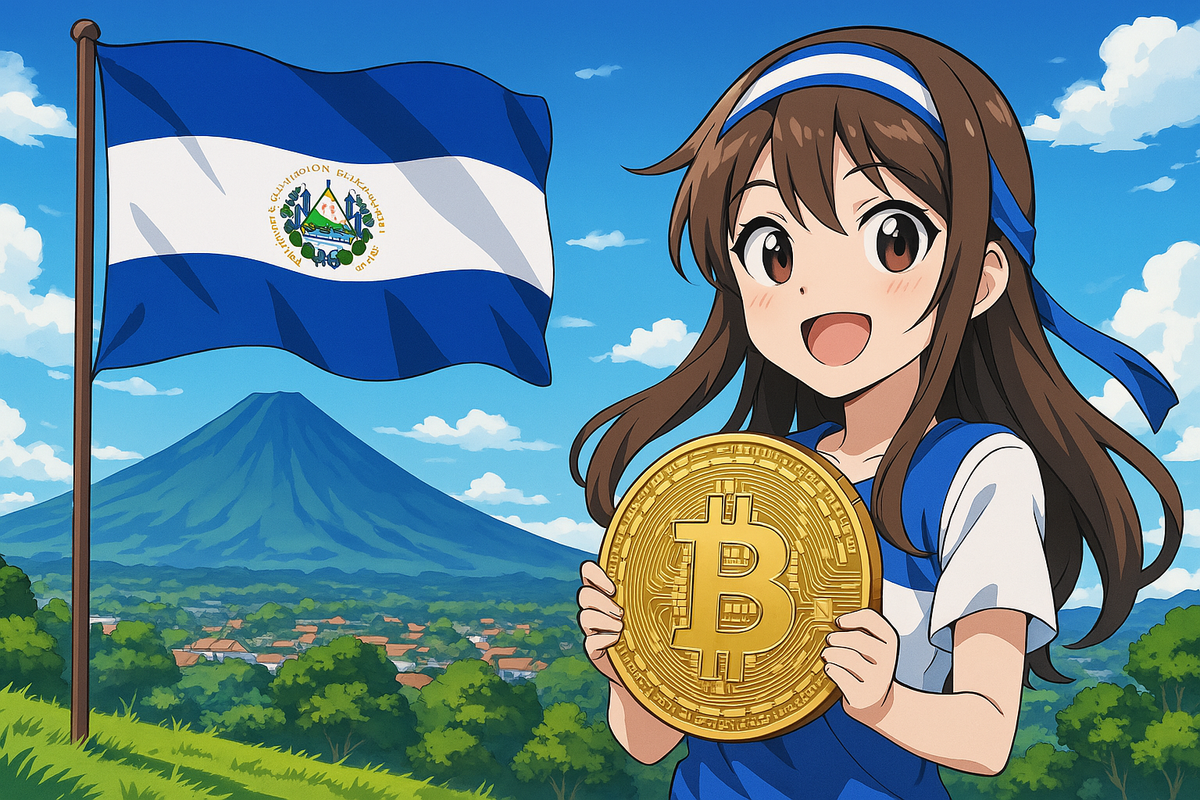El Salvador Buys 1 Bitcoin a Day -And Their Strategy Will Shock You

In September 2021, El Salvador made headlines as the first country in the world to adopt Bitcoin as legal tender. Many skeptics assumed it was a publicity stunt. Critics called it irresponsible, risky, and even dangerous for a developing nation.

But more than three years later, El Salvador is still buying Bitcoin, and now — their long-term strategy is starting to make sense.
This isn’t just about hype. It’s about nation-building, sovereignty, and a bold financial play that may just change how small countries manage wealth forever.
Let’s break down what El Salvador is doing, how much Bitcoin they’ve accumulated, and why their strategy could shock you.
How It All Started
Under the leadership of President Nayib Bukele, El Salvador passed the Bitcoin Law in 2021, officially recognizing Bitcoin as legal currency alongside the U.S. dollar.
The government:
- Created a national Bitcoin wallet called Chivo

- Offered citizens $30 worth of BTC to onboard them
- Made BTC legal for use in all transactions (though businesses could opt out)
- Promised to build a “Bitcoin City” powered by geothermal energy from volcanoes
Most importantly, El Salvador began using government funds to buy Bitcoin.
While some countries were stockpiling gold, El Salvador was buying sats.
How Much Bitcoin Does El Salvador Own?
As of April 2025, El Salvador owns approximately 2,860 BTC, acquired at an average price of around $40,000 per coin.
This would place the current value of their Bitcoin holdings at over $200 million (with BTC trading above $70,000). For context, that's a significant chunk of the country's GDP, which sits around $30 billion.
What’s remarkable is that instead of selling during the bear market, they kept buying — every single day.
Bukele confirmed in December 2022 that the government began a “1 BTC per day” strategy, adding to the country’s reserves in small, consistent amounts. This dollar-cost-averaging (DCA) method is often used by disciplined long-term investors.
The Logic Behind Their Strategy
To understand El Salvador’s thinking, you have to zoom out beyond price charts.
They’re not just buying Bitcoin for speculative gains. They’re trying to:
1. Escape U.S. Dollar Dependence
El Salvador’s economy is dollarized — they don’t print their own money. That means they’re vulnerable to U.S. inflation and monetary policy. Bitcoin offers them a path to monetary independence.
2. Attract Crypto Capital and Tourism
With Bitcoin-friendly laws and zero capital gains tax on crypto, El Salvador has become a hotspot for Bitcoin entrepreneurs and nomads. This boosts tourism, investment, and national brand.
3. Build a Financial War Chest
Instead of storing wealth in bonds or cash (which lose value over time), El Salvador is betting that Bitcoin will serve as an appreciating reserve asset, like digital gold.
4. Future-Proof the Economy
By investing in Bitcoin infrastructure and education, El Salvador aims to train a future generation of developers, miners, and blockchain innovators, positioning themselves for the digital economy.
Why This Strategy Might Shock You
Most governments take years to make small financial reforms. El Salvador moved fast, made bold decisions, and stuck to them — even when the market crashed.

They bought Bitcoin during bear markets, ignored international pressure (including from the IMF), and focused on long-term vision over short-term pain.
Their playbook looks less like traditional central banking and more like that of a Bitcoin maximalist hedge fund.
It’s not what we’re used to seeing from a government — but that’s the point.
Is It Paying Off?
At the time of writing, El Salvador is in profit on its Bitcoin holdings. In early 2024, when BTC crossed $50,000 again, the country’s portfolio entered the green for the first time.
By March 2025, with Bitcoin trading above $70,000, their holdings are worth over $200 million, with tens of millions in unrealized gains.
“This all stops in April.” “This all stops in June.” “This all stops in December.”
— Nayib Bukele (@nayibbukele) March 4, 2025
No, it’s not stopping.
If it didn’t stop when the world ostracized us and most “bitcoiners” abandoned us, it won’t stop now, and it won’t stop in the future.
Proof of work > proof of whining https://t.co/9pC0PoY3YQ
Criticism and Caution
Of course, the risks are real. Critics argue that:
- The Bitcoin purchases weren’t fully transparent
- Not enough Salvadorans actually use BTC in daily life
- The money spent could have been used for schools, hospitals, or social programs
There’s also volatility. If Bitcoin drops 50% again, their portfolio could lose hundreds of millions in value.
But the government has argued that Bitcoin is a long-term strategic asset, not a short-term cash flow tool. And for now, they seem determined to see it through.
What You Can Learn From El Salvador’s Playbook
El Salvador’s Bitcoin strategy offers a few powerful lessons — even for individual traders and investors:
- Think long-term, not short-term
- Ignore noise and stick to your conviction
- Use DCA (dollar-cost averaging) during bear markets
- View Bitcoin as a savings technology, not a get-rich-quick scheme
And most importantly: Fortune favors the bold — but also the patient.
⚠️ Final Thoughts (and a Warning)
El Salvador is making history with its Bitcoin experiment. If it works, it could change how small nations manage reserves, attract investment, and achieve economic freedom.
But it’s not guaranteed. This is a high-risk, high-reward strategy.
For individual investors, the lesson isn’t to copy exactly what Bukele is doing. It’s to understand why he’s doing it — and then ask yourself: how will you position yourself for the future?
Because whether you’re a nation or just a regular person…
Bitcoin doesn’t reward hype. It rewards conviction.
